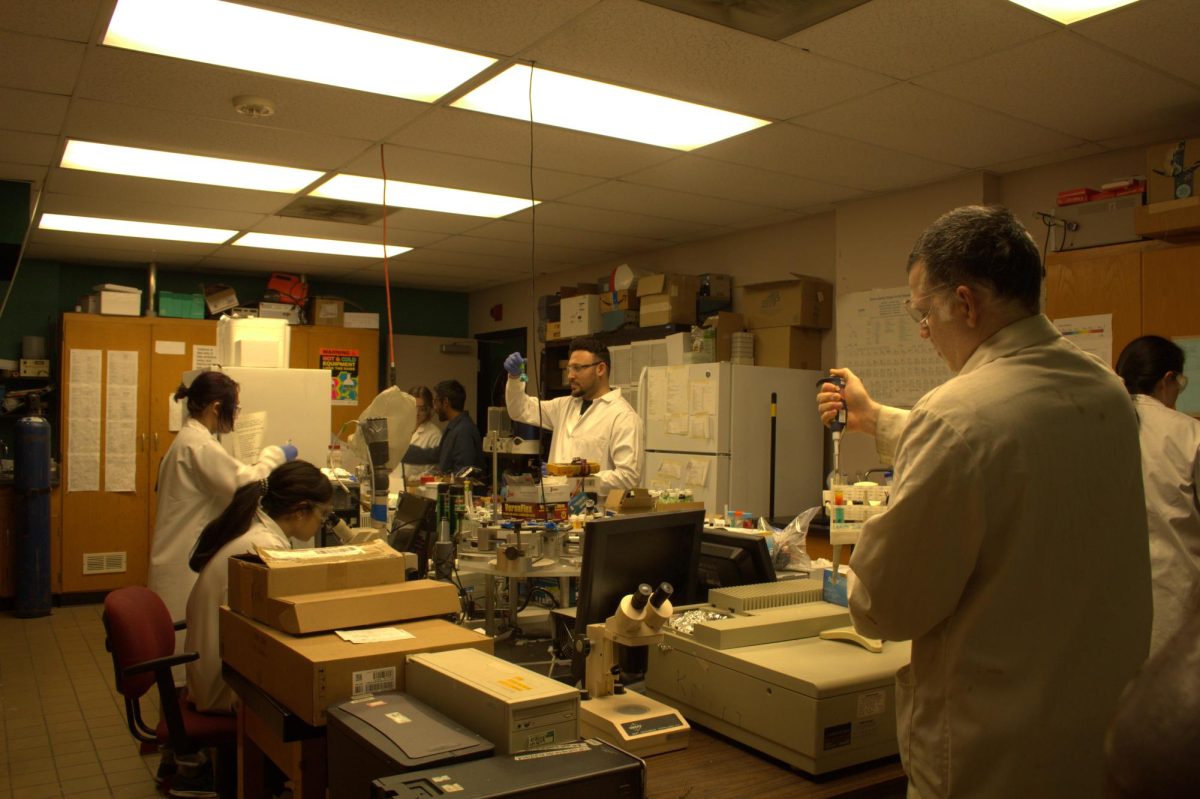I’m not giving students ‘trigger warnings’
June 11, 2016
The day I’m forced to offer “trigger warnings” before teaching is the day I stop teaching. To insist that I, or any other teacher, warn students that the material in a class might upset them defeats the purpose of education. Colleges and universities must remain institutions that inflame curiosity and, by their very existence, disturb those who enter their gates.
But if trigger warnings become a perfunctory, sanctioned and unopposed knee-jerk reaction — however well-meaning — to precisely the kind of discomfort, dissatisfaction, disruption and disturbance of the peace that is the mission of authentic education, then I’ll call it quits. If that day arrives, I’ll be done with classrooms and will hold lessons in my house, or in the woods or on the city streets. Education is not designed to reassure; its job is not to soothe but to disturb — otherwise intellect and emotion both remain inert and unmoved. If you protect the unexplored intellectual and psychological landscapes within yourself, you end up with a wilderness.
In his poem “Andrea del Sarto,” Victorian poet Robert Browning wrote, “Ah, but a man’s reach should exceed his grasp, or else what’s a heaven for?” But instead, are we encouraging today’s students to insist that everything be modified in order to be in reach? If somebody can’t get it, it should be taken off the shelves?
Advertisement
Put it this way: If you’re afraid of cats and you’re assigned “Winnie-the-Pooh,” do you need a Tigger warning?
I believe it’s a sign not of fragility but of immaturity to stick your fingers in your ears and say “Nyah nyah nyah” if you’re hearing something you don’t like. If you spend your life putting your fingers across your eyes and looking between them because you worry about something disturbing, you’re going to miss most of what’s going on.
Like shutting the window to the sound of distant thunder or shutting your eyes to the sight of a beggar on the street, trigger warnings encourage you to interrupt or suppress responses before you encounter any representation, action, idea or emotion you suspect might make you uncomfortable. By doing so, trigger warnings inhibit a reaction to the essential ingredient of any great work of art — or any moment of human connection, for that matter — that might arouse pity, empathy, sympathy or connection.
The New Yorker’s May 30 article, “The Big Uneasy,” quoted a student from Oberlin who wanted “Antigone” to come with a trigger warning because, he argued, trigger warnings are “like ingredient lists on food.” The Oberlin student went on to explain, “People should have the right to know and consent to what they are putting into their minds, just as they have the right to know and consent what they are putting into their bodies.”
Greek drama is not Greek yogurt; college professors are not food tasters. Such a comparison reduces university students to the ultimate consumers.
Trigger warnings are the intellectual equivalent of refusing vaccinations: They are misguidedly seen as a way of protecting the young. As my colleague Kristina Dolce argues, the anti-vaccine crowd and the trigger-warning crowd both employ “fear of exposure” rhetoric, believing that exposure leads to contamination. But as Kristina argues, “Vaccines, like great works of art, make one more resilient, not less.”
Here’s a personal example: My mother died of a miserable illness when I was a kid. Had I spent my life avoiding dying female protagonists, I’d have stayed away from the Bible, Bambi and all the Brontes.
Advertisement*
In trying to protect myself, I would have missed out on what I would now call “my life.”
You can cry out about what you don’t know, but you can’t argue against it. Only those who understand something and have experience with it can wrestle with it, grapple with it, and if appropriate, undermine the authority of it. Trigger warnings are a version of a kind of intellectual eugenics. There’s something sterile, unproductive, and grossly contorted about the process. Their fiercest advocates are poorly equipped not only because they are dealing with their own intolerance but also because what they’re learning to cherish is ignorance.
You can’t lead if you don’t know what’s in front of you or what’s behind you. You can’t lead if you’re afraid to look around.
(c)2016 The Hartford Courant
Visit The Hartford Courant at www.courant.com
Distributed by Tribune Content Agency, LLC.
Advertisement









